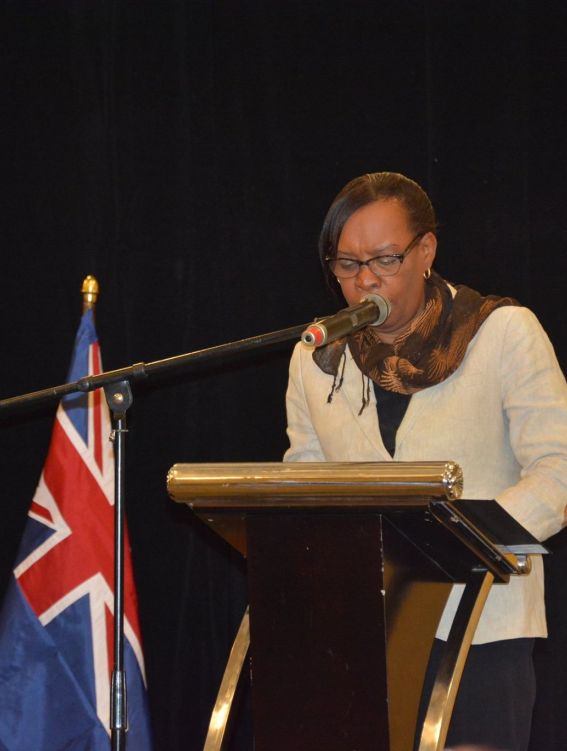(CARICOM Secretariat, Turkeyen, Greater Georgetown, Guyana) Statisticians began meeting in Roseau, Dominica, on Monday to develop core indicators as the Caribbean Community (CARICOM) moves towards fulfilling the requirements of the Sustainable Development Goals (SDGs).
At a Technical Workshop on the Indicator Framework for the 2030 Agenda for Sustainable Development, statisticians will craft robust recommendations on the core indicators for further review towards approval by the Standing Committee of Caribbean Statisticians (SCCS) and ultimately to the organs of the Community for endorsement.
The meeting will also develop a Technical Working Group (TWG), procedures for its operation/functioning, and also make recommendations on its work programme and on the way forward. Member States have been keen on establishing the TWG and 10 have already volunteered to participate.
Speaking at the opening ceremony, Dr. Philomen Harrison, Director, Regional Statistics at the CARICOM Secretariat, pointed out that the SDGs “will be it us for a long time, and therefore the development of this TWG and its work” were critical and timely. The SIDS framework SAMOA Pathway must also be taken on board, she said.
Placing the workshop sessions in context, Dr. Harrison said that statisticians of the Region had been very proactive and engaged in the approach to the process of the then post-2015 Agenda which is now the 2030 Agenda for Sustainable Development. They were especially focused on the implications for CARICOM as Small Island Developing States to be able to measure the more than 200 SDG Indicators that were proposed at the global level, as well as on the framework of the SIDS Accelerated Modalities of Action (SAMOA) Pathway.
The Region’s engagement took off in 2013 when the SDGs framework was placed on the agenda of the Standing Committee of Caribbean Statisticians and the CARICOM Advisory Group on Statistics. More focus was placed on the matter in 2014 at the Second High Level Advocacy Forum (HLF) on Statistics; at the Third SIDS Conference in Apia, Samoa where CARICOM Statistics was given a voice through PARIS21; and in a statement endorsed by the SCCS which urged the international statistical community to push for a dual set of indicators including a core set for CARICOM SIDS that would be feasible to compile.
In 2015, a regional training workshop was convened to discuss the preliminary list of global SDG indicators and to provide recommendations on their suitability. Also in that year, an Action Plan for Statistics – which arose from the Second HLF/SDGs/Samoa needs for statistics and the challenges and requirements to address these – was endorsed at the 40th SCCS Meeting. CARICOM Heads of Government endorsed the Action Plan in July 2016.
In December 2016, the CARICOM Secretariat and International and Regional partners met to consider what should be the core as recommended by the CARICOM SCCS in the form of a Regional Consultative and Training Meeting.
“It should be mentioned that we have always thought to contextualise the indicators and in this regard to bring together producers of statistics and the policy personnel as prime users of these statistics. The view is that while statistics are needed for policy formulation – policy actually leads and should inform the statistics that should be produced by National Statistics Offices (NSOs)”, Dr. Harrison said.
The three-day meeting is funded in part by the European Union under the Tenth European Development Fund (10th EDF) and is hosted by Dominica.
73/2017





